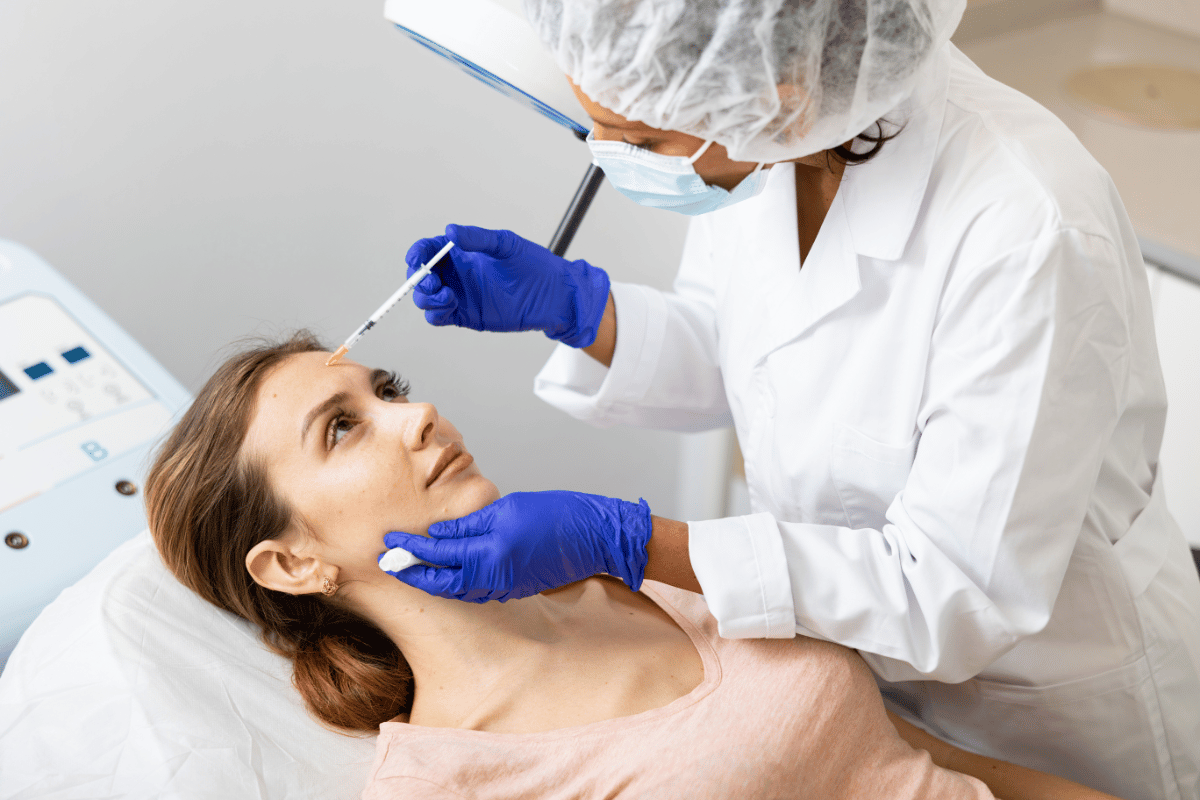How to Transition to a Career in Medical Esthetics?
Does blending healthcare, beauty, and patient care excite you? If it does, that’s the beauty of a career in medical aesthetics.
As a medical esthetician, you’ll work alongside dermatologists and plastic surgeons to offer advanced skin care treatments like laser therapy, chemical peels, and microdermabrasion in a clinical setting. But how do you become a medical esthetician?
Transitioning into this specialized field requires a combination of education, practical experience, and a strong personal brand. Let’s explore eight key steps to help you make this exciting career shift.
Understand the Role of a Medical Esthetician
The first step in your transition is understanding what it means to be a medical esthetician.
Unlike traditional estheticians, medical estheticians work in clinical settings and perform advanced treatments to improve the skin’s health and appearance. You’ll often collaborate with healthcare professionals to provide more medically focused treatments than the services offered at a spa.
Medical estheticians can perform procedures such as microneedling, laser treatments, injectables, and others that require a higher level of technical skill and knowledge. Understanding this distinction will help clarify the path you need to take to transition into this specialized field.
Research Education Programs
Your educational journey is one of the most essential steps toward becoming a medical esthetician. Start by looking into esthetics programs that provide foundational knowledge in skincare and programs that focus on advanced medical treatments.
Some schools offer specialized pathways for medical esthetics that will give you both the practical and theoretical training you need to succeed in this career. One such option is Aveda Inspire Greatness’s Master Esthiology Program, which provides a comprehensive curriculum tailored to aspiring medical estheticians. This program is an excellent gateway into the medical esthetics field because it offers hands-on training in advanced skincare techniques.
Obtain Necessary Certifications and Licenses
After completing your education, the next step is certification. Licensing is a legal requirement in most states and countries. The process usually involves passing an exam to demonstrate your competency in performing treatments safely and effectively.
Depending on where you live, additional certifications may be necessary for specialized treatments like laser therapy, dermaplaning, or injectables. These advanced certifications will allow you to broaden your skill set and make you a more versatile and competitive candidate in the job market.
Gain Hands-On Experience
Practical experience will help you master medical esthetic techniques and build confidence in your abilities. Look for internships or assistant roles in medical spas, dermatology offices, or plastic surgery clinics to gain hands-on experience with experienced professionals.
Doing so will help refine your technical skills and expose you to the clinical side of the business, from patient consultations to post-treatment care. Experience in various settings will make you more adaptable and ready to handle different client needs.
Stay Informed About Industry Trends
Medical esthetics is a fast-evolving field that constantly pioneers new treatments and technologies. Familiarity with the latest trends will keep you competitive and ensure you can offer clients the most up-to-date services.
Adopt the habit of attending industry seminars, subscribing to trade publications, and following thought leaders in the esthetics field. This ongoing learning will position you as an expert in your field and allow you to offer cutting-edge treatments that align with client demand.
Develop Strong Client Care and Communication Skills
While technical proficiency is crucial, client care is just as important in medical aesthetics. Medical estheticians often deal with clients who are nervous or unfamiliar with medical-grade treatments, so it’s essential to develop excellent communication skills.
Build client trust by learning to demystify complex procedures, address concerns, and offer personalized care plans. Establishing solid rapport with clients improves treatment outcomes and boosts your reputation, which is critical for a successful career.
Build Your Brand
A strong personal brand can set you apart in an industry as competitive as medical esthetics. Your branding should showcase your values, expertise, and the unique services you offer. It should help potential clients and employers understand why they should choose you over others.
A strong personal brand also includes an online presence-whether through a professional website, social media, or contributing to industry blogs. Showcase your knowledge, experience, and passion for medical esthetics to attract a loyal client base and advance your career.
Explore Job Opportunities
Finally, as you near the end of your transition, explore the various job opportunities available to medical estheticians.
You may find roles in medical spas, dermatology offices, plastic surgery clinics, or wellness centers. Since each setting has unique challenges and rewards, choose the one that best aligns with your interests and career goals.
Consider positions that allow you to continue growing and learning since working alongside experienced professionals can accelerate your skill development and help you master advanced procedures.
Final Thoughts
These eight strategies will help you transition into a career in medical esthetics, meet industry standards, exceed client expectations, and position yourself for long-term career growth in this exciting field.
If you’re excited to start this career path, now is the time to take that first step and embrace this dynamic career path!







